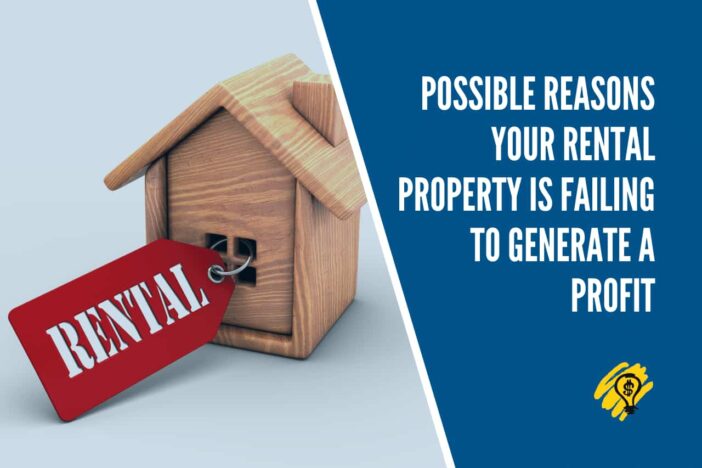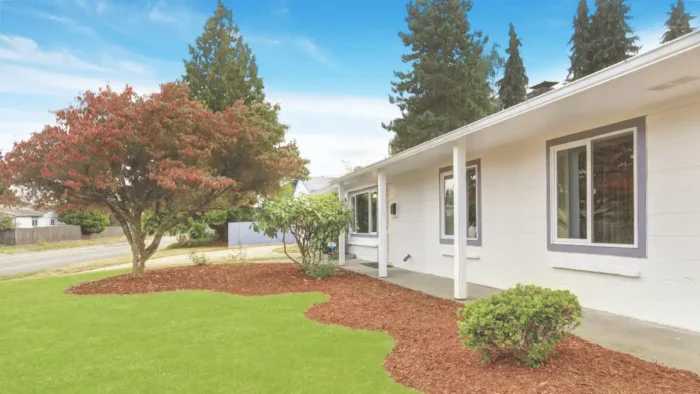For a real estate investor, few things are more frustrating than an unprofitable rental property. There are a variety of reasons for which rental properties fail to generate a profit, many of which can be addressed and remedied in a timely manner.
So, if your rental property hasn’t proven as profitable as you’d hoped, there’s no time like the present to get to the bottom of the issue. As you’ll find, one of the following causes may be at the heart of the matter.
The Area isn’t Desirable
Location is arguably the most important factor one should consider when investing in a rental property. After all, even if a property is well-maintained and rich in modern amenities, it’s unlikely to fetch the desired rent in an area where there’s very little demand for housing. In fact, it should come as no surprise that properties in areas with high median income, low crime rates and ample housing demand are able to command much higher rents than those found in locales with very little to offer.
To help prevent yourself from making the same mistake with future investments, take the time to properly research the location of any rental property you’re interested in purchasing. If an area has little growth potential, low median income, or a big crime problem, it may be a good idea to set your sights on other properties. This isn’t to say that you should exclusively invest in properties in areas with high growth and abundant demand, but doing your homework before committing to a purchase can help ensure that you have all the facts at your disposal and are able to make an informed decision. When it comes to smart real estate investing strategies, location research is among the most beneficial.
Poor Tenant Feedback
Although some landlords regard tenants as nothing more than vehicles for passive income, it’s important to understand that your renters are essentially your employers. In the absence of dependable renters, even the most desirable property will remain vacant and unprofitable. As such, it’s in the best interest of every landlord to be attentive to the needs and concerns of their renters.
Poor tenant feedback can hurt you on a number of fronts. For starters, it can result in low renter retention, leaving you constantly scrambling to fill vacancies. Secondly, it can severely limit interest from prospective tenants. After all, if they’ve read disparaging feedback about you and your approach to property ownership online, they have little reason to give you a chance.
This is among the reasons you should always seek to maintain favorable relationships with tenants. Among other things, this entails making yourself accessible to them. Every renter you take on should be provided with a work phone, emergency phone, and email address for making maintenance requests and reporting various concerns. You should also make sure to regard every maintenance request as a priority and get them taken care of posthaste.
If you have other properties to manage or a separate day job, you may not have the bandwidth for personally addressing tenant concerns. Should this be the case, you’ll need to enlist the aid of a professional property manager, who will act as your proxy and take point in any and all matters relating to maintenance and tenant grievances.
Lack of Attention Paid to Maintenance
As discussed above, a responsive approach to maintenance will serve you well on the renter relations front. Conversely, regarding maintenance as an afterthought is liable to result in decreased renter retention, scathing online feedback and possibly even legal action. In the interest of avoiding this, make sure to respond to any maintenance requests you receive in a timely and professional manner. Additionally, in the case of large multi-family properties, it may be necessary to employ full-time maintenance personnel – especially if you’re dealing with dozens (or hundreds) of units.
Although rental property investments can be highly profitable ventures, this doesn’t mean that every investment opportunity will net you a healthy sum. There are a number of reasons for which rental property investments don’t pay off – some of which are outside of owners’ control. So, if your rental property isn’t generating the desired profit, you should start considering possible reasons for this. Forming a solid understanding of why a rental property has proven unprofitable is a vital step in creating a plan of action.





